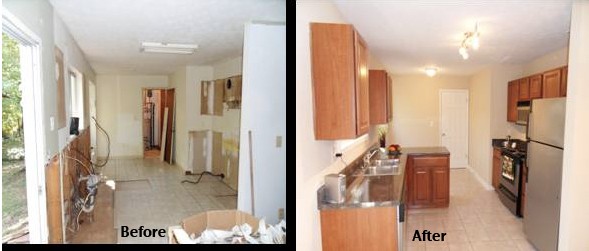How smalltime houseflippers made the housing bubble much much worse
Post on: 16 Март, 2015 No Comment

A new study shows how short-term speculators made the housing bubble much, much worse.
24BOX_forSaleHouse.jpg.CROP.rectangle3-large.jpg /% Could the housing bubble have been predicted?
Photograph by iStockphoto/Thinkstock.
The data let us see that the growth of house prices in the first half of the aughts was closely associated with a sharp rise in the number of people owning multiple homes. In 2000, only 20 percent of mortgages were going to multiple mortgage holders and 75 percent of those were for second houses. By 2006, 35 percent of mortgages were multiples and more than 5 percent of all loans were going to people with four or more mortgages. Whats more, the trend was especially pronounced in what we now know to have been the prime bubble states of California, Florida, and Nevada. By 2006, at least 25 percent of mortgages in these states were going to people who already owned one home, and a further 20 percent went to people with at least two.
Unless you think there was a sudden explosion in the number of people looking to own two separate vacation houses, it seems clear that this rise in purchasing was driven by speculative investors. This, in turn, would mean that there was enough speculation going on to be more than just froth atop the general mania: Home flippers were a substantial segment of the overall demand for housing, fueling construction and keeping prices high.
One issue this raises is that the price bubble may have been driven in part by an odd asymmetry in the housing market. The speculative investors who felt bullish about home prices were able, thanks to the mortgage system, to make highly leveraged bets based on their analysis. For all we know, an equal quantity of would-be speculators had the opposite analysis, and thought house prices would fall. In a normal market, their bets would have canceled out the optimists bets. But while a basically normal middle-class person can get lots of leverage to go long on the price of a house (thats what a mortgage is), theres no equivalent way to go short.
For example, I first looked at buying a home in 2005 and concluded that prices were too high. But I had no way to put my money where my mouth was beyond simply continuing to rent. I couldnt bet directly that a house price would fall. A sophisticated hedge fund manager like John Paulson. of course, did have the opportunity to bet against housing but the financial instruments that let him do it arent accessible to the man on the street.
This new study is another blow to the theory that the Federal Reserves low interest rates during the jobless recovery years of 2003-05 are to blame for the bubble. As the authors of the study point out, interest rates matter a lot to people buying a home they intend to live in for decades, but are scarcely relevant to an investor making a short-term play. The real issue facing a house-flipper is, again, leverage. The lower the down payment you can get away with, the more houses you can buy and the more money you can make when your bets pay off.
How can public policy help us avoid a repeat of the house-flipping disaster? The government should regulate leverage more strictly. It should also draw a sharper distinction between purchasers of owner-occupied housing (especially first-time purchasers) and those making speculative or semi-speculative investments in additional houses. In retrospect, it was a bad mistake to welcome the growth of low- or no-down-payment loans as a victory for increasing homeownership. And it was an even worse mistake to make it easy for people to exploit those loans to purchase multiple houses.














